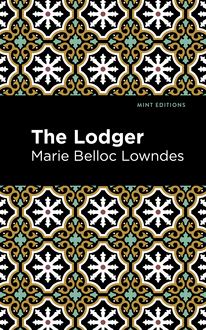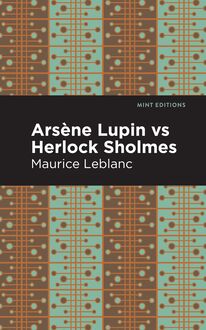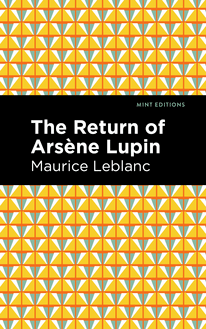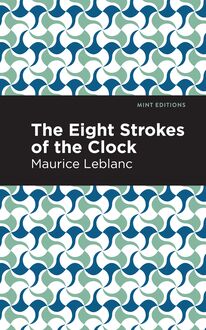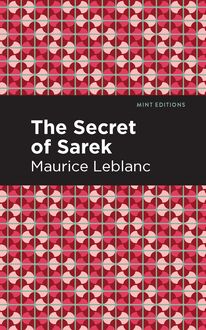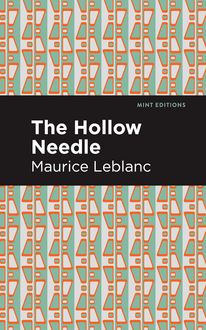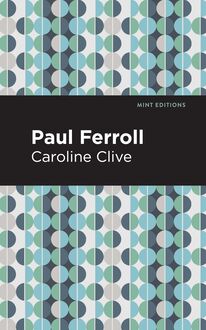-
 Univers
Univers
-
 Ebooks
Ebooks
-
 Livres audio
Livres audio
-
 Presse
Presse
-
 Podcasts
Podcasts
-
 BD
BD
-
 Documents
Documents
-
- Cours
- Révisions
- Ressources pédagogiques
- Sciences de l’éducation
- Manuels scolaires
- Langues
- Travaux de classe
- Annales de BEP
- Etudes supérieures
- Maternelle et primaire
- Fiches de lecture
- Orientation scolaire
- Méthodologie
- Corrigés de devoir
- Annales d’examens et concours
- Annales du bac
- Annales du brevet
- Rapports de stage
La lecture à portée de main

Vous pourrez modifier la taille du texte de cet ouvrage
Découvre YouScribe en t'inscrivant gratuitement
Je m'inscrisDécouvre YouScribe en t'inscrivant gratuitement
Je m'inscrisEn savoir plus
Vous pourrez modifier la taille du texte de cet ouvrage
En savoir plus

Description
Madge Cohen does not regret her marriage to a man nearly twice her age, but looks forward to the day she is able to remarry. Young and lively, Madge was forced to marry Peter Cohen, a man nearly old enough to be her grandfather. While his wealth affords Madge new and greatly appreciated privileges, she finds Mr. Cohen to be boring. While Madge dreams of all the exciting things she could do with a younger husband, she decides to study music, so she can channel her unspent energy into something other than daydreams. Though Madge is forced to wait for love, she is happy to help find it for her friends, especially Lance, Mr. Cohen’s protégé. Determined to watch over Lance to ensure he does not make any costly mistakes, Madge and Lance grow to be close friends who support each other without conditions. However, when Lance becomes fascinated with Miss. Shore, a mysterious and blunt woman, Madge has her doubts. After Lance finds Miss Shore homeless and alone, but oddly stoic, he asks Madge to help her, hoping to get to know Miss Shore better. As a stubborn woman, Madge has a difficult time discarding her original ill impression of Miss Shore. Still, she agrees to help Lance grow closer to her, inviting Miss Shore to stay in the Cohen manor for a time. As the arrangement unfolds, Madge becomes increasingly concerned about the mysterious woman, who seems to be completely haunted by a dark event in her past.
With intimate descriptions of scenery, characters, and social customs, At the Moment of Victory is a beautiful portrayal of the upper class during the late 19th century. First published in 1889, At the Moment of Victory continues to pique readers’ interest with its vivid characters and compelling narrative.
This edition of At the Moment of Victory by Catherine Louisa Pirkis features a new, eye-catching cover design and is printed in an easy-to-read font. With these accommodations, At the Moment of Victory caters to a modern audience while preserving the original beauty of Catherine Louisa Pirkis’ work.
Sujets
Informations
| Publié par | Mint Editions |
| Date de parution | 23 février 2021 |
| Nombre de lectures | 0 |
| EAN13 | 9781513277011 |
| Langue | English |
| Poids de l'ouvrage | 2 Mo |
Informations légales : prix de location à la page 0,0500€. Cette information est donnée uniquement à titre indicatif conformément à la législation en vigueur.
Extrait
At the Moment of Victory
Catherine Louisa Pirkis
At the Moment of Victory was first published in 1889.
This edition published by Mint Editions 2021.
ISBN 9781513272016 | E-ISBN 9781513277011
Published by Mint Editions®
minteditionbooks.com
Publishing Director: Jennifer Newens
Design & Production: Rachel Lopez Metzger
Project Manager: Micaela Clark
Typesetting: Westchester Publishing Services
C ONTENTS P ROLOGUE I II III IV V VI VII VIII IX X XI XII XIII XIV XV XVI XVII XVIII XIX XX XXI XXII XXIII XXIV XXV XXVI XXVII XXVIII XXIX XXX XXXI XXXII XXXIII XXXIV XXXV XXXVI XXXVII XXXVIII XXXIX XL XLI XLII XLIII XLIV XLV XLVI E PILOGUE
P ROLOGUE
The hush of twilight was falling upon the rugged mountains and deep ravines of Santa Maura, a lonely hamlet on the Corsican coast; bird-notes were dying under it; the whirr and stir of summer insect life growing faint; even the wash and swirl of the Mediterranean sounded dreamy and far away under the spell of the “silent-footed Angel-herald of the night.” He beckoned to the great, gloomy forests of pine and cork, and they sent forth their shadows in troops and squadrons; laid his soft, dull hand on the heavy odours of magnolia and myrtle, and they poised in mid-air, knowing that heaven’s gates were shut against them; he drew his veil of mist from east to west across the stormily-purple sky, and the smirch of tawny orange, which marked where a great, golden sun had blazed itself out, was seen no more; touched with his finger of mystery the figure of a woman descending a mountain path straight into the heart of a ravine, and lo! she stood transfigured into the likeness of a ghostly visitant from the kingdom of Hades.
That woman might have been Astarte herself for the silent grace of her movements and the dead whiteness of her face, which showed as if moon-washed from out the surrounding dimness.
In the ravine into which she was descending, Night was following hard and fast on the “angel-herald’s” step to claim his own. The mountains rose gaunter, more drear, more black with every downward step the woman took, until, at length, they seemed literally to pierce the vaporous gray sky with their peaks and turrets.
High over one of the highest of these peaks there shone out through the vapour one star of intense metallic brightness; at the immediate base of this rock, bowered amid olives and vines, stood a small country house, a stone-built chalet, surrounded by a narrow strip of garden.
The woman was making her way straight for this chalet. At its garden-gate she paused for a moment, looking right and left and in all directions, as if to make sure that her movements were unseen. Unheard they must, have been; not ghostly fingers themselves could have unlatched that gate more noiselessly, nor ghostly feet have trodden with a lighter footfall that garden path, which, winding in and out among arbutus-trees and myrtles, led to the creeper-covered porch of the house. Under this porch had been placed a small table and a rustic reclining seat. On this seat lay a man, locked in heavy slumber.
He was about thirty years of age, and of remarkably handsome appearance, swarthy, mustachioed, and with waves of black, curly hair sweeping across his forehead. His arm pillowed his head. On the ground at his feet, as if carelessly tossed on one side, lay a broad-brimmed hat. On the small table beside, him stood a glass about three-parts filled with wine.
This way, that way, all ways the woman looked hurriedly, furtively, with every step she took. Not a sound broke the stillness; not a leaf rustled, nor belated insect flitted. She stood within a hand’s breadth of the man now; she held in her breath; then, slowly, cautiously drawing from beneath her cloak a small phial, she poured its contents noiselessly into the glass of wine. As she drained the last drop into the glass, she chanced to lift her eyes to the door of the house. It stood wide open, disclosing a stove-place filled with flowering plants, over which, against the wall, hung a large, square mirror.
In that mirror, as the woman lifted her eyes, she could see darkly reflected the whole shadowy garden-picture. She could see, also, her own white face, and white hand which held the small phial.
I
“When I marry again,” said young Mrs. Cohen, with cheeks something the color of field poppies, and eyes that flashed like diamonds under lamplight, “I shall marry a boy—years younger than I!”
“Quite so,” assented her companion, a young man who leaned over the piano at which she was seated; “it is absurd for women to marry men older than themselves!”
“And it is very ridiculous of you,” continued the lady, “to imagine because I like to—to—”
“Squabble?” suggested the gentleman.
“Have a little fun with you now and then, that, therefore, I am willing to marry you.”
“My dear Madge, I never for a moment imagined anything of the sort. I took your last ‘No’ as final six months ago.”
“Everyone knows that you are years—years—years too old for me.”
“Oh yes, years, years, years too old. I am the whole of three years and three-quarters older than you are.”
“Everyone knows that we haven’t the faintest liking for each other.”
“Exactly. Everyone knows,” mimicked the young man, “that we can’t be ten minutes in the same room without quarrelling.”
“In fact,” continued the lady with heightening voice as well as colour, “we are getting positively to detest each other.”
“The wonder is that we are ever to be found in each other’s company.”
“I am positive,” cried Mrs. Cohen, jumping up from her music-stool, “that it was you who said that ‘the library was getting confoundedly hot;’ yes, those were your very words, and you must ‘get out of it.’”
“I am confident it was you who looked over your shoulder—at me—and said, ‘I am going into the music-room to practise, and—’”
“Yes,” interrupted the lady, “that was because I saw Sir Peter looking at me, and I knew how delighted he would be if we crept out of the room together for all the world as if we—”
“Were bent on spooning?”
“And it’s of no use your standing: there agreeing with me, as if I didn’t know what I was talking about or didn’t mean what I said. I repeat, when I marry again, I will marry a boy if I like.”
“W HY NOT? H OW WOULD YOU like a nice little middy, about fourteen?”
“He shan’t be a day over twenty at any rate, and he shall be obedient and tractable, and I’ll call him ‘my child.’”
“Ah, he’ll like that!”
“And I’ll tell him where to get his clothes and what cigars to buy!”
“He’ll be sure to buy them, won’t he? Look here, Madge, let’s give over squabbling, and strike a bargain. I’ll engage to look out for this amiable young gentleman, who’ll buy his clothes and cigars where his wife tells him, if you’ll undertake to marry him as soon as he’s found. I can’t say more, can I?”
Madge made no reply. She seated herself at the piano once more, struck a chord, ran off a little prelude, and then commenced singing her scales at a very high pitch.
Her voice was a mezzo-soprano, and her high A was a very high A indeed.
Here is the portrait of Mrs. Cohen as she sits at her piano.
Age, twenty-four years. Figure, small and slight. Eyes, hazel-green and deep-seated. Eye-brows, dark and arched—the best feature in her face. Nose, inclined to the classic, but nothing remarkable. Mouth, small and sensitive. Complexion, decidedly sallow, but flushing readily under excitement. Hair, dark brown, cut short, thick and curly.
“Young Mrs. Cohen would be nothing without her curls,” once Madge had heard a dowager say as she left a ballroom. Since then she had diligently cultivated her curls as her one strong weapon in her armoury of charms—an armoury, by the way, of which she had not a very exalted opinion.
“I think you are a remarkably plain young woman. It is a positive trial to be confronted with you so many times a day,” she was in the habit of saying when she looked at herself in her mirror.
And here is the portrait of Lancelot Clive, the young man who stood for a moment listening to the scales and then walked away saying to himself: “Not ‘soft, gentle, and low,’ today, at any rate!”
Age, close upon eight-and-twenty. Good height, well-developed chest. Eyes, bright blue, sparkling and fun-loving. Hair, golden brown, irrepressibly curly, no matter how short it might be cropped, and a complexion bronzed by constant out-door exercise.
Madge half-turned her head as her companion left the room; but she in no wise lowered the pitch of her A. Madge’s vocal scales were a wonderful outlet for her superfluous energy. She had recommenced taking singing lessons within a week of her marriage with old David Cohen, the retired diamond merchant; had dropped them in the early days of her widowhood, but had resumed them with surprising-vigour during the present year, when she had once more taken up her abode in the home of her girlhood.
“Selling herself for a diamond necklace,” had been Lance’s summing up of the marriage, to which he had received a hasty summons, while pursuing his studies at Oxford. A summons, by the way, to which he did not see fit to respond.
“Doing what is expected of me as Sir Peter’s prot é g é —keeping Lance from making himself ridiculous and blighting his prospects in life,” had been Madge’s version of the case to her own heart, as she stood before the altar vowing to “love, honor, and obey” a man old enough to be her grandfather, and whose highest conception of happiness was an interval of freedom from gout, which enabled him to “read, mark, learn, and inwardly digest” the money article in the daily paper.
Madge was in the very middle of a voluminous shake on her high A when the door behind her opened, and admitted a small, plump old gentleman, who looked as if he were in a very great hurry indeed.
There was something in the mere turn of the handle which made Madge say to herself: “It’s Sir Peter,” and stop her singing at once.
“Madge,” said the old-gentleman, “whe
Attention
En entrant sur cette page, vous certifiez :
- 1. avoir atteint l'âge légal de majorité de votre pays de résidence.
- 2. avoir pris connaissance du caractère érotique de ce document.
- 3. vous engager à ne pas diffuser le contenu de ce document.
- 4. consulter ce document à titre purement personnel en n'impliquant aucune société ou organisme d'État.
- 5. vous engager à mettre en oeuvre tous les moyens existants à ce jour pour empêcher n'importe quel mineur d'accéder à ce document.
- 6. déclarer n'être choqué(e) par aucun type de sexualité.
YouScribe ne pourra pas être tenu responsable en cas de non-respect des points précédemment énumérés. Bonne lecture !
-
 Univers
Univers
-
 Ebooks
Ebooks
-
 Livres audio
Livres audio
-
 Presse
Presse
-
 Podcasts
Podcasts
-
 BD
BD
-
 Documents
Documents
-
Jeunesse
-
Littérature
-
Ressources professionnelles
-
Santé et bien-être
-
Savoirs
-
Education
-
Loisirs et hobbies
-
Art, musique et cinéma
-
Actualité et débat de société
-
Jeunesse
-
Littérature
-
Ressources professionnelles
-
Santé et bien-être
-
Savoirs
-
Education
-
Loisirs et hobbies
-
Art, musique et cinéma
-
Actualité et débat de société
-
Actualités
-
Lifestyle
-
Presse jeunesse
-
Presse professionnelle
-
Pratique
-
Presse sportive
-
Presse internationale
-
Culture & Médias
-
Action et Aventures
-
Science-fiction et Fantasy
-
Société
-
Jeunesse
-
Littérature
-
Ressources professionnelles
-
Santé et bien-être
-
Savoirs
-
Education
-
Loisirs et hobbies
-
Art, musique et cinéma
-
Actualité et débat de société
- Cours
- Révisions
- Ressources pédagogiques
- Sciences de l’éducation
- Manuels scolaires
- Langues
- Travaux de classe
- Annales de BEP
- Etudes supérieures
- Maternelle et primaire
- Fiches de lecture
- Orientation scolaire
- Méthodologie
- Corrigés de devoir
- Annales d’examens et concours
- Annales du bac
- Annales du brevet
- Rapports de stage


